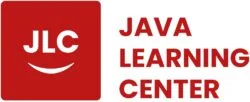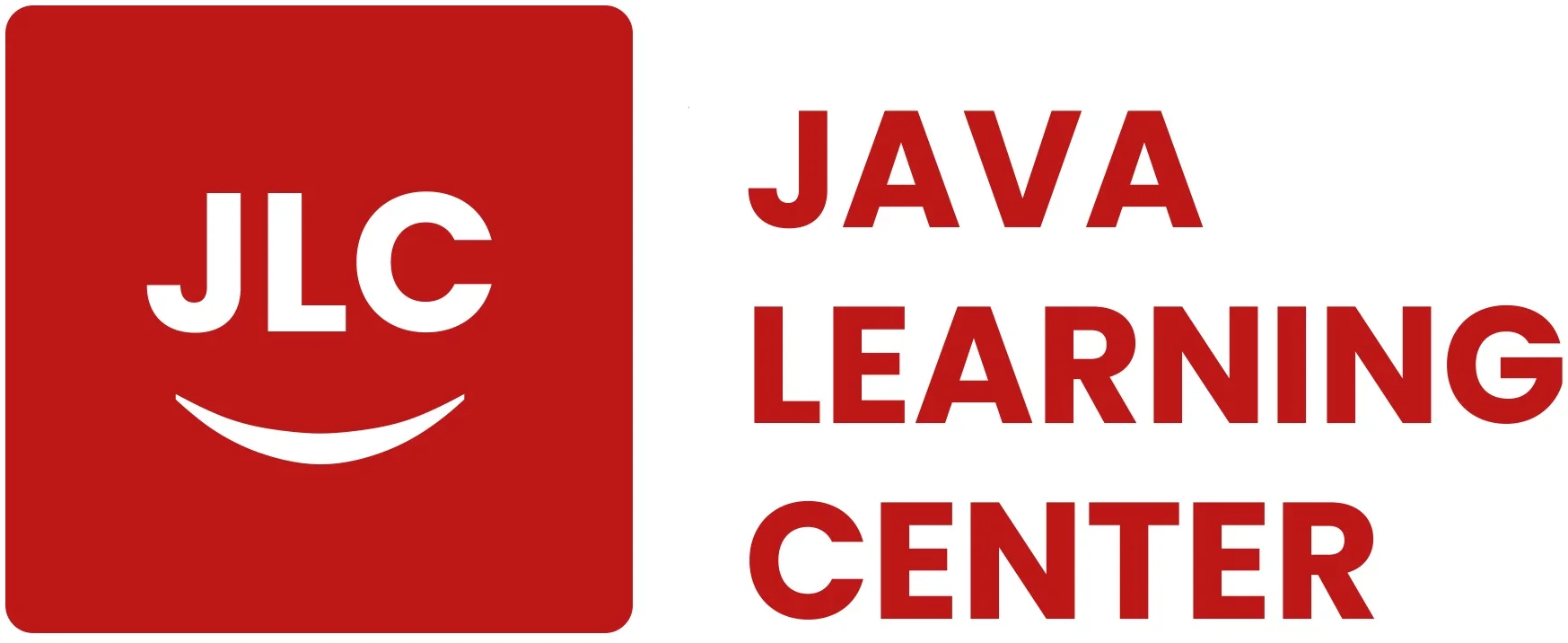Java Full Stack
June 22, 2024 2024-09-21 19:36Java Full Stack

Overview
Introduction
- Course Overview: Comprehensive training to become a Java Full Stack Developer.
- Objective: Equip students with the skills to develop both front-end and back- end components of web applications using Java.
Pre-requisites
- Any Graduate or Post Graduate in any stream
- Passionate to Work in IT Industry
- Having Basic Computer Knowledge
- Interested in Learning Programming
Course Duration
- Duration: Typically ranges from 3 to 6 months, depending on the learning pace and depth of the course.
Course Fee
36,000/-26,000/-
Training Mode
- Instructor-Led Offline Training
- Instructor-Led Live Online Training
Capstone Project
- Project Development: Build a full-fledged web application incorporating front-end and back-end technologies learned during the course.
- Real-world Scenarios: Work on real-world problems and create practical solutions.
Learning Outcomes
- Skill Acquisition: Mastery of both front-end and back-end technologies.
- Portfolio Development: Completed projects to showcase to potential employers.
- Job Readiness: Preparedness for roles such as Java Developer, Full Stack Developer, Software Engineer.
Certification
- Completion Certificate: Awarded upon successful completion of the course and capstone project.
- Industry Recognition: Certification acknowledged by employers.
Curriculum
Core Java
Introduction to Java
Java Language Fundamentals
Object Oriented Programming
Exploring java.lang Package
Exception Handling
Multi Threading
Collection Framework
IO Streams
Enums & Annotations
Java 8 New Features
Java 9 New Features
SQL PL/SQL
Introduction to Databases
Exploring SQL and CURD Operations
Exploring Select Statement
Functions and SQL Operators
Database Constraints
Exploring Joins and Sub Queries
Working with Views and Indexes
Writing PL/SQL Blocks
Writing Stored Procedures
Writing Triggers
Database Design for JLC Bookstore
JDBC
Introduction to JDBC
Steps to Write JDBC Programs
JDBC CURD Operations
Writing JDBC Utility Class
Statement
PreparedStatement
CallableStatement
Batch Updates
Forward-Only ResultSets
Scrollable ResultSets
Read-Only ResultSets
Updatable ResultSets
JDBC Transaction Management
JDBC Connection Management Techniques
JDBC and DAO Examples
Servlets
Introduction to Servlets
Setup Tomcat 8.5 and Deploy Applications
Servlets Request Processing Flow
Welcome Files
Login and Register Use Case Implementation
Config, Context and Request Parameters
Exploring Servlet lifecycle process
Understanding RequestDispatcher
Exploring sendRedirect() method of HttpServletResponse
Servlet Thread Models
Exploring HttpRequest and HttpResponse
Understanding Clients Conversational State
Exploring JSESSIONID Cookie and Session Id
Exploring HttpSession
Exploring Cookies
Exploring URL Rewriting
Servlet Scopes
Implementing JLC BokStore Shopping Cart Use Case
Implementing Remember me Use Case
JSP
Introduction to JSP
JSP Lifecycle Process
Exploring JSP Translation to Servlet
JSP Scripting Elements
JSP Implicit Objects
Exploring JSP Directives
Exploring JSP Standard Actions
JSP Scopes and pageContext
Exploring EL Expressions
Understanding JSTL Core Tags
Mini Project 1
JDBC
Servlets
JSP
MVC Architecture
DAO and TO Design Patterns
Template and Singleton Patterns
Hibernate Framework
Introduction to Hibernate
Hibernate Features
Steps to Develop Hibernate Example
CRUD Operations with Hibernate
Primary Key Strategies – AUTO and IDENTITY
Understanding Collection Mapping
Loading, Fetching and Cascading Types
Understanding Inheritance Mapping
Understanding Association Mapping
Version and Timestamp Mapping
DAO + Hibernate Example with HibernateTemplate
BookStore – Mini Project with All Mappings
Exploring HQL and QBC
Exploring Native and Named Queries
Spring Framework
Introduction tp Spring
Exploring Spring IOC
Exploring Spring AOP
Spring Connection management
Spring DAO Support
Spring Data access with JDBC
Spring Data Access with Hibernate
Spring MVC
Spring REST API
Spring Security
Mini Project 2
Spring MVC
Hibernate
MVC Architecture
DAO and TO Design Patterns
Template and Singleton Patterns
Web Development
HTML
CSS
Java Script
React
Introduction to React JS
Creating and Running React Project
Exploring Files of React Component
Handling Events in React
Passing Data from One Component to Another
Different Types of Data Structures
Accessing Array of Complex Objects
Exploring Class Components
Class Component Lifecycle Methods
Exploring Functional Components
Exploring React Hooks
Exploring React Redux
Centralizing App Data with Context
React Forms and Routers
Making Async Calls to REST API
Mini Project 3
MERN
React JS
Node JS
Express JS
MongoDB
Tools and Servers
Eclipse
Tomcat
Maven
Log4J
JUnit
GIT
GITHub
Major Project
ReactJS
Spring
Hibernate
MySQL
Benefits
- Structured Curriculum
- Hands-on Learning
- Support in Practice
- Mock Interviews
- Live Classes
- Doubts Clarification
- Weekly Exams
- Placement Support
Who can join?
- Any Graduate or Post Graduate in any stream
- Having Basic Computer Knowledge
- Passionate to Work in IT Industry
- Interested in Learning Programming
Want to know more?
Curious About Coding?

Kallingal Febin
Software DeveloperFlex
Dande Sir's teaching methodology and expertise is incomparable to others. JLC transformed me into a In-demand tech resource. It’s great to be a part of an awesome learning academy like JLC

Rafiq Bannuru
Software DeveloperL&T Technology Services
I would like to thank Dande Sir for being an inspiration to me. The lucid teaching and in-depth study materials is enough to master the technology. Thank You JLC

Munna Lal
Sr. Software EngineerLTIMindtree
Learning from Srinivas Dande Sir has been an incredibly enriching experience. His teaching style is not just informative but also deeply engaging, making complex concepts easy to grasp.

Gopal Pandey
ConsultantRobert bosch
Dande Sir's passion for the subject shines through in every session, motivating me to delve deeper into the material. Srinivas's approachable nature and willingness to clarify doubts have made me feel supported throughout my learning journey. Overall, studying under his guidance has been a transformative experience, helping me gain a solid understanding and appreciation for the subject matter."

Shivnath
Software Engineer 2CGI
It was slow and steady course but well trained.It was offline class. Core Java and then spring and springboot is covered by Dande sir. It was well structured course that helps me to land my first job at IT. Thanks

Piyush Kumar Sahay
SaaS EngineerTemenos India Private Limited
Training in JLC is like you have higher chances of cracking job interviews.

Alok Kumar Tripathi
Tech LeadANZ
Great learning experience.. Sir's ability to explain complex concepts with clarity is exceptional. Every lesson is delivered with precision and thoroughness, ensuring that all aspects of the subject are comprehensively covered.

Amit Sharma
Senior Software EngineerEPAM
Dande Sir's encouragement and support have helped me grow personally and academically, and I am grateful for the opportunity to be his student.His ability to simplify complex topics and his enthusiasm for teaching create a dynamic learning environment

Ravi Ranjan
Senior Software EngineerClarivate Analytics
Training is too good. You need to have patience in order to learn new language or framework and rest assured Dande sir will teach very well

Vidhan Chandra
Technology ArchitectTCS
I am incredibly grateful for the opportunity to learn Java, Spring, React, and DevOps at Dande's institution. The comprehensive curriculum and hands-on approach provided me with the skills and confidence needed to excel in the tech industry. Thanks to the guidance and expertise of Dande's sir.

Manish Kumar
Want Java ExpertIRIS Software
No one matches the way Dande Sir explains things and provides notes for effective studying. JLC has been a transformative experience, setting a standard of excellence in education

Aditya Srivastva
EngineerANZ
"The best teacher of all times who is learned person in all tech related specially Java technology
""

Kishore MVSR
Team Lead and Solution ArchitectCitibank NA
I am a student from the 2010 batch.. And even today, after more than 13 years since JLC, I still refer to the notes from the course sometimes.. That's the extent to which the teaching and the course helped me..

Akhilesh Kumar Bhagat
Senior Software DeveloperPublicis Sapient
If you are looking for quality education and depth of understanding technology then JLC is the place for you.

Abhishek Pandey
Technical LeaderWells Fargo
Studying and learning from Dande Sir has been a fantastic experience. His expertise and dedication are truly inspiring, making every lesson both enjoyable and educational. He is the Best Supporting teacher.

K K PATEL
Backend DeveloperVIA
Dande Sir's guidance and mentorship have truly transformed my life. Thank you for believing in me and pushing me to achieve more than I thought possible.

Rupesh
Senior Engineering ManagerI-Exceed Technology solutions Pvt Ltd
I am truly grateful for the invaluable experiences and knowledge gained at JLC, all made possible by Dande Sir's exceptional training

RAM NIWASH
System Engg.Infosys
The supportive team at JLC, fostered by Dande Sir's leadership training has prepared us to tackle challenges with confidence. I am privileged to have studied under such exemplary guidance at JLC

Shankar Dayal
Technical LeadITC Infotech
Best trainer! I am glad to share that when I started getting training in 2009 then I realized that what work software engineer does. We just need to practice what is being taught. I can never forget one dialogue "Learn the technologies guys, you will get best offer automatically". We are blessed that we got opportunity to get trained by him.

Pushkar Mane
Sr. Software EngineerZensar Technologies
Content is very good but duration to complete the course is very much, the purpose of joining course will miss after some time e.g I have dsa course ro switch job it took much time I miss my purpose

Priti Yadav
Technical ManagerRobert Bosch
No one can match Dande Sir's teaching. I am grateful for the privilege to be taught by such an outstanding educator whose passion for teaching has made my educational experience truly unforgettable.

Shesh Narayan Chakrapani
SEUST Global
Dande Sir's approach and commitment to student success create a supportive atmosphere where every question is welcomed and every concept is thoroughly explained. Thanks to JLC and Dande Sir

Sushrut Kaushik
Staff ConsultantOracle Financial Software Services
Excellent training. I learnt here, how to read java code and understand what it is saying. Before, I was afraid of coding but after getting trained from sir, I jump at the code or requirement to be developed in Java language. Excellent training, words not enough.

Jaiky Kumar
System EngineerTata Consultancy pvt ltd
I am grateful for the opportunity to learn from such an outstanding educator and institution JLC

Shiv Sagar Pal
Sr. Software EngineerFIS
JLC is the best institute in the world, and I owe a huge thanks to Dande Sir for making it possible. His dedication, expertise, and unwavering support have been instrumental in shaping my professional journey

Yadnesh Dhale
Technical LeadAtos
Dande Sir made easy to learn any new technology. Java can learn and expertise anyone in JLC.

Sasikumar P
Senior Enterprise ArchitectSephora Inc
if I study and practice the material taught by srinivas sir, i have found that no extra reading is needed to learn a technology.

Suresh S
TrainerYes
Excellent.no trainer like dande sir.even if we abroad we can't find a trainer like dande sir

Abhijeet Andansare
Senior Software EngineerCoforge pvt Ltd
It was insightful experience. I learned a lot in fact everything related to technologies I learnt at JLC. Dande sir is an excellent. Always there for you to solve your doubts. If you want to upscale and Excel in IT industry this is the place for you.

A Chandra Sekhar
Technical LeadWipro Ltd
I was blank after exit from the college I learnt technology and english from Dande sir only. If I didn't meet sir definitely my life would not be this much good. Thank you Sir. God bless you Sir. God gifted you sir for students like me.

Abhishek Kumar
Lead AnalystCGI
My experience was absolutely wonderful. Even a novice person can learn from Dande sir very easily. One should never give a second thought while joining any course in JLC.

Pankaj Kumar Jha
Application DeveloperIBM India, Bangalore
JLC is a very good career shaping and learning center. It was my pleasure that I learned from Srinvas Sir under his guidance.i will suggest to all new comers who wants to shape their career in Java and new technology to go there.

Dinesh Luniya
Assistant ConsultantTata Consultancy Services
Deep traning with entire fundamentals, after training i feel like 3+ years of experience being fresher

Join JLC Learning Community!
Subscribe to our newsletter and be the first to know about new courses, special offers, and expert tips. Enter your email below to join our community!
Address
No.456, 1st Floor, 7th Main Road, 7th Cross Rd, BTM 2nd Stage, Bengaluru, 560076
Explore
Copyright 2024 My Java Learning Center. All rights reserved.

